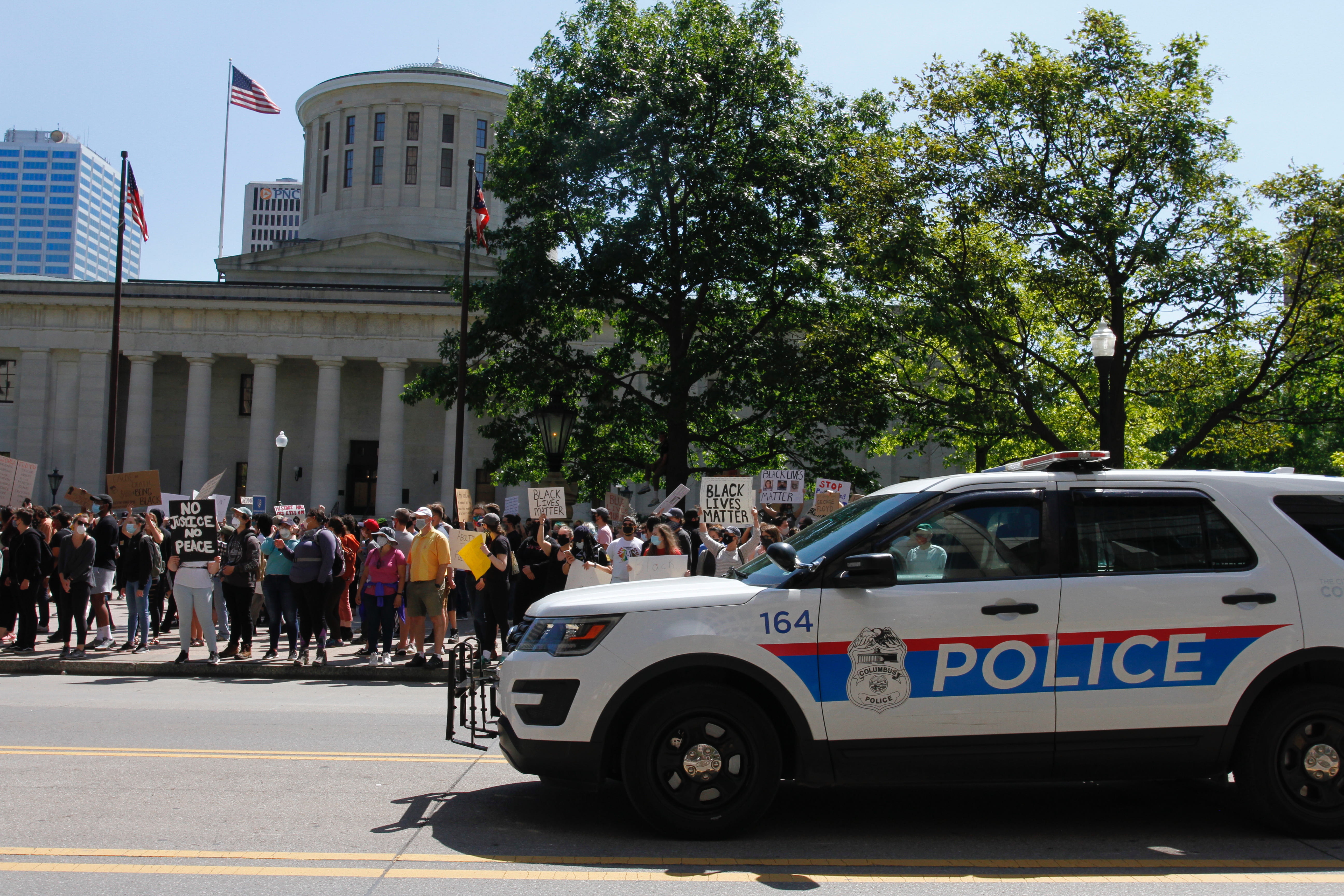
Protesters outside the Ohio Statehouse during demonstrations over police action which left several Black Americans dead. Credit: Sarah Szilagy | Campus Editor
Following weeks of protests over police violence, the city of Columbus announced Wednesday a review of police action that includes Ohio State academics.
City officials announced an independent review of the actions Columbus Police took during the protests in May, June and July. The review board will consist of community volunteers, academics, lawyers, students and researchers from the John Glenn College of Public Affairs at Ohio State, former U.S. Attorney Carter M. Stewart said in a press conference Wednesday.
“We’re going to look at the facts of what happened, how we got to his moment, what went right, what went wrong and figure out how we, as a community, can do better,” Stewart said.
In an email to students in the Glenn College, Dean Trevor Brown said the research project will focus on police action between May 28 and July 19. The project will be led by Stewart with Brown as principal investigator. Students from the college and the Moritz College of Law along with researchers and experts from the Police Foundation and the Ohio Justice and Policy Center will provide research support.
“Our job is to make sure that this is fair, balanced and objective,” Brown said at the press conference. “The Glenn College is an interdisciplinary unit in a very large comprehensive university part of a wide network of scholars from different disciplines and different backgrounds, and we’re going to draw upon that expertise to get that holistic picture of how the city performed and how it could perform better.”
The project will gather and review interviews, records and video evidence from the protests to evaluate any gaps between the city’s response to the protests and the community’s expectations. Stewart said the review board will then make “research-informed recommendations” to the city.
Brown, in the email to students, said the project would also review whether law enforcement “effectively balanced” public safety and first amendment rights during the protests and whether the use of force and police tactics were appropriate to control the crowd.
Columbus City Attorney Zach Klein said the project will be completed by the end of the year and cost $250,000, of which around $200,000 will come from the city’s drug seizure fund and nearly $50,000 will come from a sub-fund within the city’s general fund budget. Police Chief Thomas Quinlan said taxpayers’ dollars would not be used to fund the project.
During the demonstrations, police were criticized by protesters for using tear gas and pepper spray on peaceful crowds and non-lethal munitions, such as wooden bullets, which are meant to be fired at the ground and bounce up, but were fired directly at protesters. Police have said they acted when objects were thrown at them, including plastic water bottles.
In an incident that gained national attention, Lantern journalists were pepper-sprayed during a citywide curfew at the intersection of Lane Avenue and North High Street. The journalists clearly identified themselves repeatedly and that they were exempt from the curfew, to which one officer said he didn’t care and sprayed the three journalists. Columbus Police told Lantern editors that they were looking into the incident but have not returned any conclusions.


